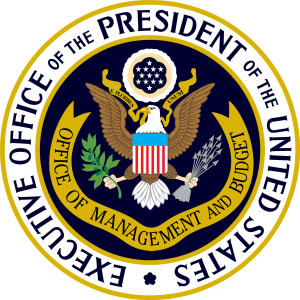OMB agenda confirms timelines for RFS, E15, Biopreferred rules

January 4, 2023
BY Erin Krueger
The White House Office of Management and Budget on Jan. 4 published its 2022 Fall Unified Agenda and Regulatory Plan, confirming the expected timeline on federal rulemakings related to the Renewable Fuel Standard, E15 sales and the Biopreferred program.
According to the agenda, the U.S. EPA is still expected to finalize its RFS “set” rule by June 2023, as required as part of a consent decree filed with the U.S. District Court for the District of Columbia. The proposed rule, released on Dec. 1, 2022, aims to set renewable volume obligations (RVOs) for 2023, 2024 and 2025. It also addresses the generation of electric renewable identification numbers (e-RINs) from eligible sources of biomass-based electricity. A comment period on the rulemaking is open through Feb. 10.
Advertisement
The EPA is also expected to finalize a rulemaking that would allow year-round sales of E15 in several Midwestern states in March 2023, according to the agenda. The agency in early December delivered a proposed rule to the OMB related to a petition filed by several Midwest governors seeking a solution to year-round E15 sales in their states. A summary published by the OMB explains that the proposed rule “implements a provision in the Clean Air Act which provides that a governor of a state may request that the 1-psi volatility waiver provided in the statute for gasoline-ethanol blends be removed in the state.” The agency said it has received such a request from Illinois, Iowa, Kansas, Minnesota, Nebraska, North Dakota, South Dakota and Wisconsin.
According to the agenda, the USDA is also working to complete a rulemaking of interest to the bioenergy and biorefining sector. The agency is expected to release a notice of proposed rulemaking in February related to its Biobased Markets Program (Biopreferred). The action will add 2018 Farm Bill provisions to the program, specifically proposing to codify program guidance into the regulations. The rulemaking is expected to reduce burden on both the applicants and the agency by reducing requirements, clarifying requirements, streamlining the application and certification process, and increasing efficiencies in program delivery.
Advertisement
Additional information on the Fall 2022 Unified Agenda of Regulatory and Deregulatory Actions is available on the OMB website.
Related Stories
Iowa farmers have a new market opportunity for their 2025 soybean crop. Landus is expanding its Clean Fuel Regulation initiative, made possible by recent policy changes expected to increase Canada's demand for liquid biofuel.
Topsoe, a leading global provider of advanced technology and solutions for the energy transition, has been selected as the renewable diesel technology partner for CountryMark’s Mount Vernon, Indiana refinery.
Klobuchar, Moran introduce bipartisan legislation to support biorefineries, renewable chemicals, and biomanufacturing
Sens. Amy Klobuchar, D-Minn., and Jerry Moran, R-Kan., on July 31 announced the introduction of the Ag BIO Act. The legislation aims to update the USDA’s loan guarantee program to better support biorefining projects.
The U.S. exported 35,953.6 metric tons biodiesel and biodiesel blends of B30 or greater, according to data released by the USDA Foreign Agricultural Service on Aug. 5. Biodiesel imports were at 2,148.9 metric tons for the month.
XCF Global leverages Alfa Laval technology to enhance pretreatment capabilities at New Rise Reno facility
XCF Global Inc. on Aug. 5announced it leverages Alfa Laval Inc. pretreatment technology at its New Rise Reno biorefinery, a sustainable aviation fuel (SAF) plant located in Nevada. The pretreatment technology enhances feedstock flexibility at the plant.
Upcoming Events










